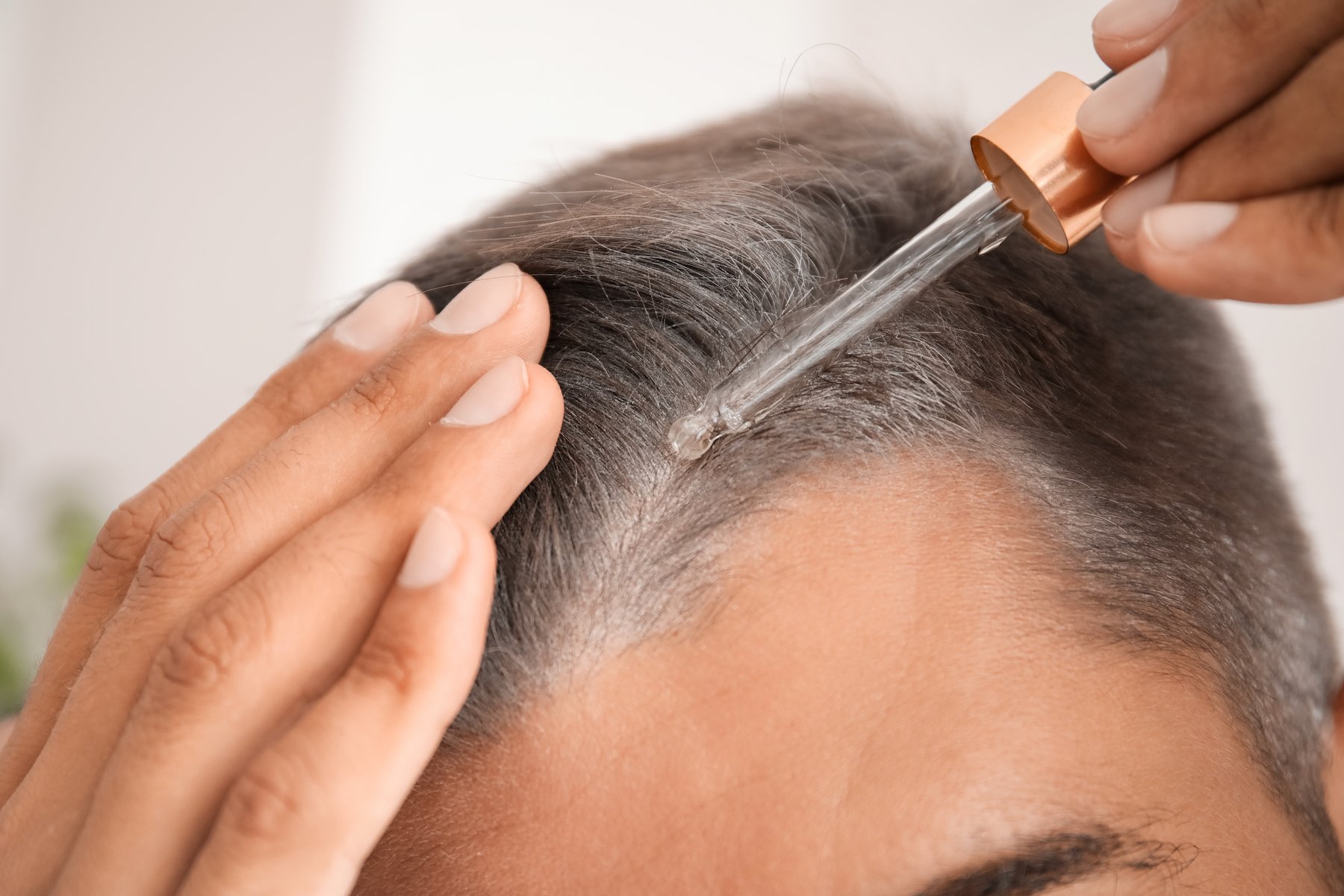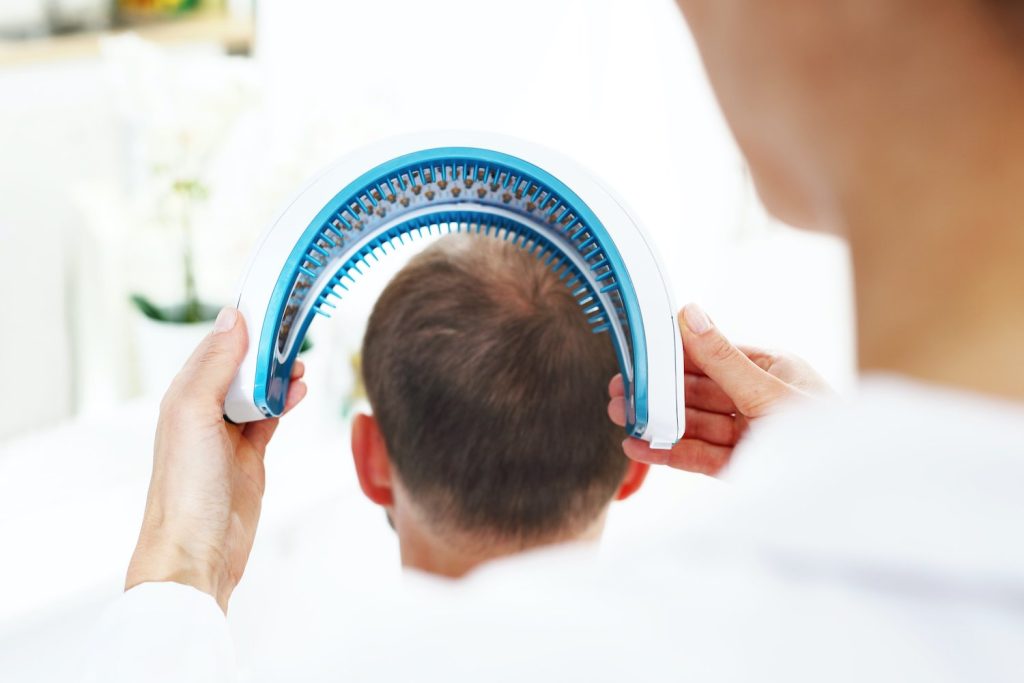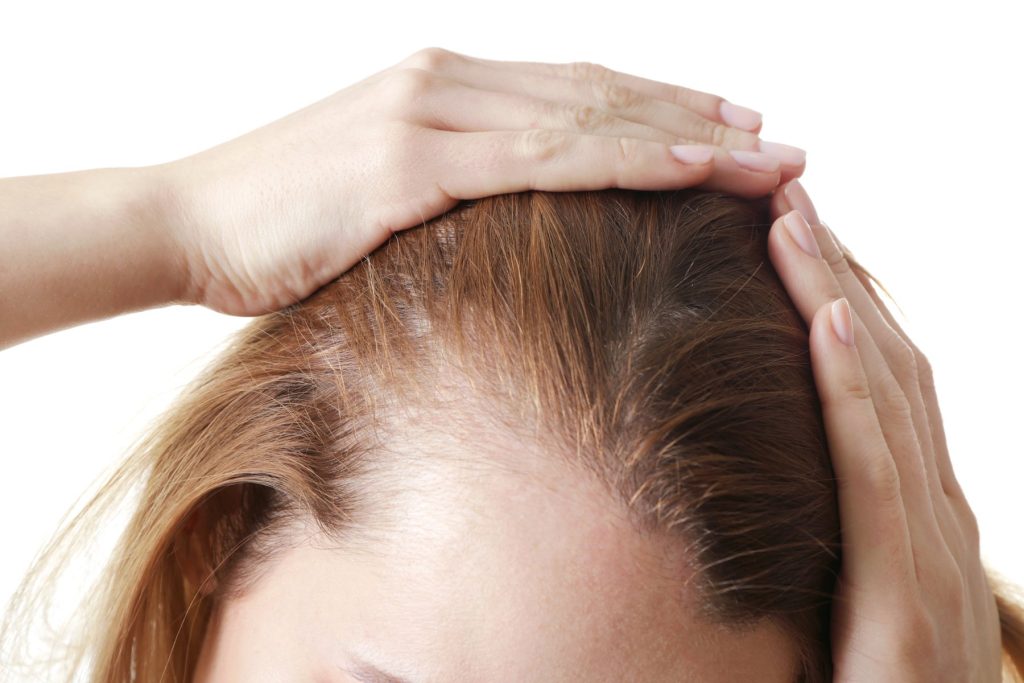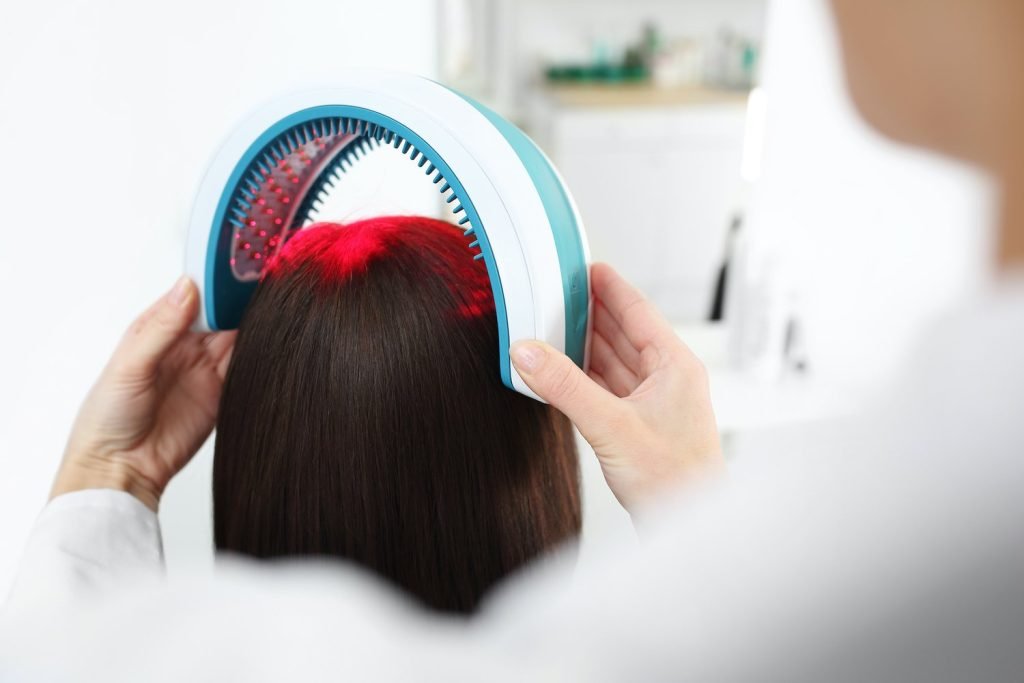- Hairline Clinic - Hair Loss Treatment in Akron and Cleveland Ohio - Schedule FREE Consultation
- 330.285.4815
- CONTACT US
Is There a Cure for Hair Loss On the Horizon?

Promising discoveries in laboratories increase our understanding of what leads to hair loss. But for now, finasteride and minoxidil are what works.
Since ancient times, the search for a cure for baldness – hair loss – has been a relentless pursuit. Julius Caesar himself perfected the comb-forward look, topped by a laurel crown, to mask his thin locks. It wasn’t convincing. He didn’t have the choice of hair loss solutions that men and women have nowadays, such as hair restoration surgery and laser hair loss therapy.
But recent research out of Harvard University, reported in the journal Nature, offers some hope for an actual hair loss cure. But it should be noted the research looked specifically at stress-related hair loss, which, while fairly common, is not the type of thinning experienced by the majority of men and a sizeable number of women as well. That version of hair loss is known as MPB, short for “male pattern baldness.”
Stress-driven hair loss can be psychological in nature (due to such things as divorce, job loss, serious illness in the family, etc.) or clinical. As much as 40 percent of persons who survived a serious case of COVID-19, particularly those who had fevers for days or weeks, have experienced some hair loss (coronavirus-related hair loss is believed to be temporary in nature, although time will tell). In any case, the stress of hair loss itself can drive further shedding of the follicles.
Stress-related loss has the medical name telogen effluvium, which is characterized by a premature forcing of more hair follicles into the resting phase, which is the phase of growth when hair is shed on even healthy, thick manes.
What the Harvard Stem Cell Institute researchers found – working with colleagues at MIT, Massachusetts General Hospital, the Icahn School of Medicine (NYC), and University Hospital Wurzburg (Germany) – was the stress hormone corticosterone was responsible for hair loss in mice. This hormone is equivalent to the human stress hormone cortisol. In higher quantities (i.e., in higher times of stress), corticosterone inhibited the normal activation of activation and growth of hair in the mice.
This was a discovery. And while it was with mice, not humans, and no mechanism (medicine or other therapy) has been devised to reverse this action, it is a breakthrough that might eventually lead to a means to counter the stress hormone.
Another study out of the University of Manchester (UK) Centre for Dermatology Research found that a drug developed to treat osteoporosis, Cyclosporine A (CsA) that is also a treatment for autoimmune diseases, can cause hair growth. Evidently it reduces a protein in the body (SFRP1) that inhibits hair follicle growth. Clinical tests to identify its safety in hair loss patients have not yet been done. But if successful, it would be useful for persons with male pattern baldness.
Two drugs have been on the market for a generation and are effective: finasteride (Propecia) and minoxidil (Rogaine, etc.). They come with some side effects and are most effective in the earliest stages of hair loss. Finasteride can have serious side effects on unborn fetuses, therefore use by women is highly discouraged.
Needless to say, there is further discovery to be made around human hair loss, and, thankfully, there are scientists working on it.
We provide individualized hair loss treatments and solutions for men and women seeking cures at our hair loss treatment clinics in Cleveland and Akron Ohio.
If you are a man or woman suffering from hair loss conditions and seeking a cure, we provide industry-leading, individualized hair loss treatments and hair loss solutions to men and women in Cleveland and Akron, OH. Schedule a FREE confidential consultation and evaluation at our Akron Hair Loss Treatment Clinic or our Cleveland Hair Loss Treatment Clinic by calling 330.633.5225 today!
Hair Loss Treatments
Men's Hair Loss Solutions
Women's Hair Loss Solutions
Men's Hair Loss Solutions
Ready for change? Call our hair loss experts at (330) 285-4815 to schedule a FREE appointment.
HairLine Clinic is an industry leader providing individualized hair loss treatments to men and women experiencing hair loss in Akron and Cleveland, Ohio.










